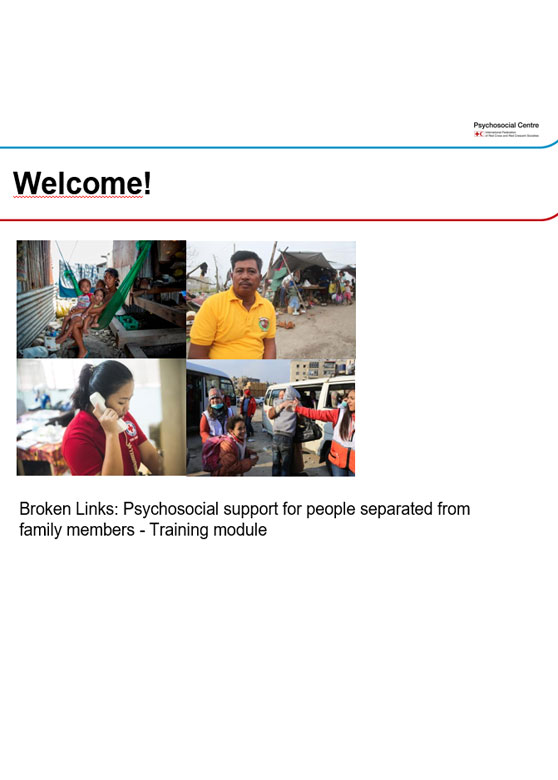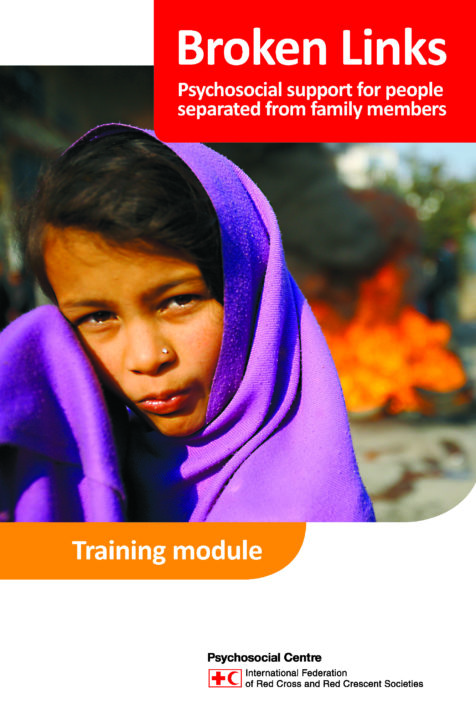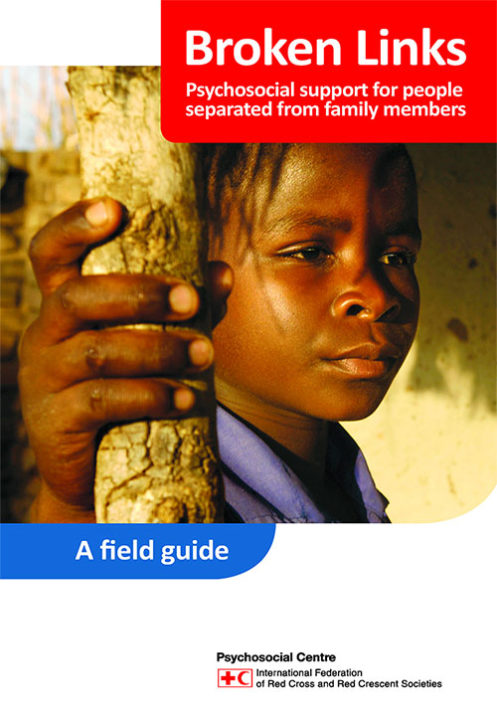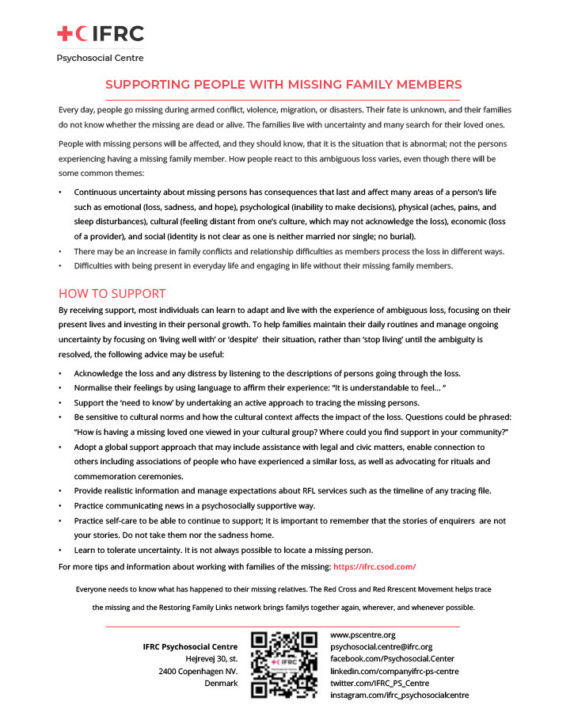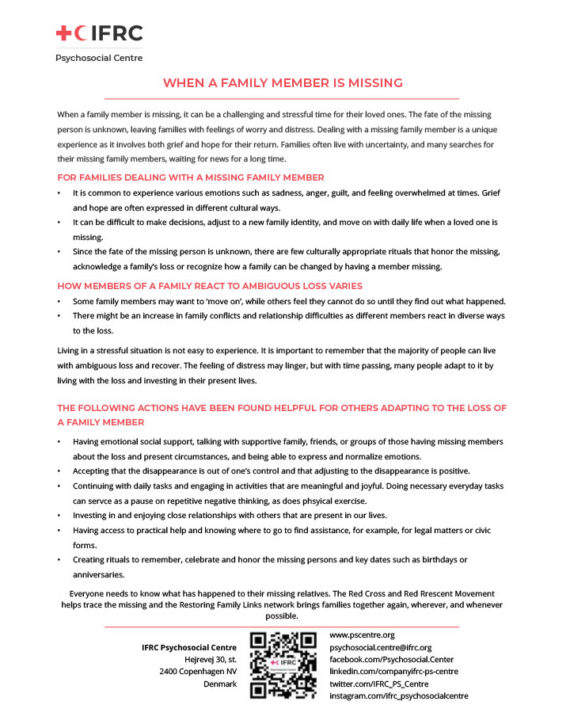This training module is designed as a one-day workshop with five sessions that correspond to the materials in the field guide. It provides a basic introduction to psychosocial support for people who have been separated from family members. It is not a requirement that participants have a background in health, mental health or social welfare. The ideal number of participants per training is 20-25 people. It is preferable that trainers, on the other hand, have a background in health, mental health, social welfare, education, conflict studies or migration, and have a good understanding of psychosocial support and of the possible impact that being separated can have on individuals and families. Trainers should be familiar with facilitating psychosocial trainings, have good communication skills and a working knowledge of the Movement. The training module can be delivered as a one-day workshop or included as part of a longer training programme, for example, in disaster preparedness, first aid or social welfare. The box below shows the programme for the training module as outlined in this booklet. The material provided will need to be adapted appropriately to the local context. The PowerPoint slides accompany the training module, and can be modified for each training to fit the specific context.
guides_tools
Broken Links: Training module - PowerPoint Presentation
Information
English
2014
pptx
Translations
No translations available


